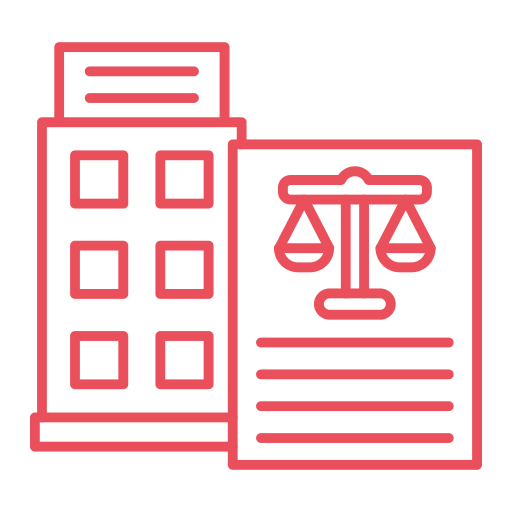Competitive Pricing Guaranteed
With thousands of transactions, we have seen a lot. We have been there and we have done that

Real Estate Lawyer In Toronto | GK Law
At GK Law, we pride ourselves on being recognized as a leading real estate lawyer in the Greater Toronto Area, offering unparalleled legal services across a wide spectrum of real estate matters. Our expertise spans from residential to commercial real estate transactions, ensuring your investment is protected through every step of the closing process.
GK Law: Toronto Real Estate Lawyer
We understand the complexities of real estate law in Toronto, ensuring smooth and successful transactions whether you're buying, selling, or refinancing your property. Navigating the intricate landscape of financial institutions, land transfer taxes, and title insurance requires expertise, knowledge and attention to detail. Our commitment to excellence and client satisfaction is unwavering. We leverage our extensive experience and deep understanding of real estate law to secure your peace of mind, ensuring every transaction is conducted with the utmost care and precision.
Understanding Real Estate Law in Toronto
Toronto's real estate market is dynamic and ever-changing, requiring a knowledgeable and experienced partner to navigate its complexities. GK Law is well-versed in all aspects of real estate law, from land transfer taxes to title transfers and beyond. Our expertise ensures your real estate transactions are compliant and advantageous, protecting your interests at every turn. We stay ahead of market trends and legal updates, offering our clients strategic advice that maximizes their investments and minimizes their risks. Whether you're dealing with residential or commercial real estate, our team is equipped to handle your legal needs with efficiency and professionalism.

Gabriel Krikunez
B.Sc., MBA, LL.B.
-
Call to Get a Quote 416-665-9000

Real Estate Lawyer Toronto Near You
Gabriel Krikunez is the founder and Principal Lawyer of GK Law. He founded the firm in 2012.
Gabriel has a strong education background, including an LLB from Osgoode Hall Law School and an MBA from the Schulich School of Business. He gained lots of experience and skills while articling and working in well-regarded firms before opening his practice.
GK Law works hard to protect their client’s legal rights for all their real estate and business transactions. At Real Estate Lawyers – GK Law, we have over FIFTEEN YEARS of experience closing well over 10,000 transactions. We treat each of our clients as we would our family and friends, delivering warm and client focused service in Toronto and GTA.
Why Choose GK Law as Your Property Lawyer?
Choosing the right real estate lawyer in Toronto is crucial for safeguarding your investment and ensuring a hassle-free process. GK Law stands out from the competition by offering personalized services tailored to meet the unique needs of our clients. Whether you are an individual property owner, a real estate investor, or a manager of a large pension fund, our approach is designed to offer you customized legal solutions. Our team takes the time to understand your specific circumstances and objectives, providing tailored advice and support every step of the way. With GK Law, you gain not just a legal service provider but a trusted partner committed to achieving your real estate goals.

Quicker Timelines – Fast Closing
Don't pay until it's done! Contact us today
No Hidden Charges
Transparency guaranteed. No hidden fees.
NO Legal Fee Until Completion
Let us help you close faster.
Our Real Estate Law Services
At GK Law, we provide a comprehensive suite of legal services to persons and corporations seeking legal assistance in real estate transactions. Some of the areas we assist our clients with include:

Residential Lawyer
Our residential legal services cover every facet of buying, selling, and owning a home. From conducting title searches to addressing zoning issues, we provide tailored advice and support to ensure your residential property transactions are secure and compliant with all legal standards.

Commercial Law
Understanding the complexities of commercial law is essential for business owners and investors. GK Law's expertise encompasses all aspects of commercial real estate, including purchases, sales, lease agreements, and development projects. We are committed to supporting your commercial endeavors with strategic legal solutions.

Corporate Law
GK Law extends its legal proficiency to corporate law, assisting businesses with structuring, governance, transactions, and compliance. Our corporate law services are designed to support your business's growth and success, addressing legal challenges and opportunities with sophisticated and actionable advice.

New Home Purchases
Navigating the journey of purchasing a new home requires expert legal guidance. At GK Law, we specialize in facilitating new home purchases, ensuring every aspect of your transaction—from the agreement of purchase to securing title insurance—is handled with precision and care. Let us make your dream of homeownership a seamless reality.

Refinancing Existing Properties
Refinancing can offer a pathway to better financial flexibility or more favorable terms. Our experienced team provides comprehensive support through the refinancing process, advising on legal requirements and liaising with financial institutions to streamline your property's refinancing, ensuring optimal outcomes for your financial health.

Property Sales and Legal Transfers
Selling a property involves complex legal procedures and documentation. GK Law excels in managing the intricacies of property sales and legal transfers, including navigating land transfer taxes and preparing all necessary legal documents. Our expertise ensures a smooth transition of ownership, safeguarding your interests throughout the sale process.

Wills and Estates
Planning for the future is crucial. Our wills and estates services ensure your assets are distributed according to your wishes. We offer comprehensive estate planning, including wills, trusts, and powers of lawyer, providing peace of mind and securing your legacy for your loved ones.

Mortgage Refinance
Refinance your mortgage with confidence, knowing that you have professional legal guidance to help you navigate the process and protect your interests.

Litigation Law
Our experienced litigation lawyers are here to help you protect your rights and achieve the best possible outcome.
The Importance of a Competent Real Estate Lawyer
Engaging a skilled real estate lawyer is crucial in navigating Toronto's vibrant and complex real estate market. By partnering with GK Law, you're not only ensuring a smooth transaction process but also safeguarding your investment and securing your future in one of Canada's most dynamic real estate environments. Our expertise serves as your best defense against the myriad of potential legal pitfalls that can arise during real estate transactions. From drafting and reviewing agreements of purchase and sale to conducting due diligence and ensuring compliance with all local regulations, our team's comprehensive approach is designed to protect your interests at every step.
Avoid Potential Legal Pitfalls
Our extensive experience in real estate law enables us to proactively identify and address potential issues before they escalate into significant problems. This foresight ensures that your real estate transaction proceeds smoothly, without any unexpected complications. By preemptively tackling challenges such as title defects, zoning issues, or disputes over property boundaries, we minimize risks and avoid delays, ensuring a streamlined process for all parties involved.
Ensure Smooth Transactions
Whether you’re engaging in a residential real estate transaction or navigating the complexities of a commercial real estate deal, our dedicated team is committed to facilitating a seamless process from start to finish. We understand the nuances of both residential and commercial properties, and our goal is to ensure that every transaction—from the initial agreement of purchase to the final settlement of the purchase price—is conducted efficiently, effectively, and in your best interest.
Protect Your Investment
At GK Law, we take the protection of your investment seriously. Our meticulous review of all legal documents, thorough title searches, and proactive communication with real estate agents and other involved parties ensure that your property is fully protected. Our approach not only secures your current transaction but also positions you favorably for future real estate endeavors. By addressing potential legal issues upfront and ensuring the integrity of your investment, we lay the groundwork for your continued success in Toronto’s real estate market.
Fees and Disbursements: What to Expect
Understanding the costs associated with real estate transactions is essential for every buyer, seller, and investor. At GK Law, we prioritize transparency and clarity in all our financial dealings. Our approach to fees and disbursements is designed to provide you with a comprehensive understanding of your legal costs upfront, eliminating surprises and ensuring that you are well-informed about the investment you are making in our services. Whether you are engaging in residential or commercial real estate transactions, we outline all potential fees and disbursements in detail, offering you peace of mind and a clear financial path forward.


Transparent Pricing for All Residential Transactions
For residential transactions, GK Law is committed to providing transparent pricing that covers all aspects of your real estate deal. From drafting and reviewing contracts to closing the sale, our fees are structured to ensure that you receive comprehensive legal support without hidden costs. We believe in making our pricing clear from the outset, allowing you to budget effectively for your transaction and understand exactly what services you are receiving.
Understanding Disbursements in Real Estate Law
Disbursements are out-of-pocket expenses that are necessary for the completion of your real estate transaction, such as registration fees, title search fees, and other miscellaneous costs. At GK Law, we strive to educate our clients on the nature and necessity of these disbursements, ensuring that you understand each cost and its purpose. Our goal is to demystify the legal costs associated with real estate transactions, providing a transparent breakdown of disbursements to avoid any unexpected expenses.
CLIENT TESTIMONIALS


FAQ
Closing Cost
There are generally no ‘closing costs’ in a refinance transaction, other than legal fees and disbursements!
Closings costs vary depending on the nature of the transaction. Newly constructed homes (i.e. builder purchases will include the cost of the Tarion warranty, the costs of tree planting, driveway paving, property tax adjustment, extension fees if any, NSF fees on deposit cheques if any, energization costs such as the installation of a hydro or water meter etc…). Not all builders charge the same closing costs. Resale homes do not have any of these costs. Closing costs are usually limited to an adjustment in respect of any prepaid property taxes, fuel oil tank (if any) and prepaid maintenance for the month of closing, in the case of condos. Again, your lawyers’ fees and disbursements may also be considered as closing costs.
The purchaser pays the closing costs, which are paid at the time of closing. These costs are added to the total that is otherwise due and payable. For example, if your closing costs are $4,450, then this sum will be added to the monies that are due to the seller, but will of course be disbursed by your lawyer to the appropriate parties on closing. Your lawyer’s fees and disbursements will be lumped in as well. The land transfer taxes will be paid by your lawyer to the Province and the other closing costs will likely be paid to the seller with your lawyer retaining the monies that are payable to him on account of fees and disbursements and HST.
Closing costs is an umbrella term for various legal fees and expenses that are payable on closing. These can mean anything from closing adjustments such as for prepaid property taxes and maintenance for resale properties, to builder adjustments such as paving, tree planting, Tarion fees, etc…to even Land Transfer Taxes and to even legal fees and disbursements. The term “closing costs” does not have a precise definition and will vary depending on whom you speak to.
The same as with residential, all closing costs are paid by the purchaser.
A CAP rate is a type of ‘rate of return’. In simple terms, cap rate is a calculation of annual net rents (excluding financing costs) divided by the price paid for the property. For example, rents received are 100,000, then you subtract expenses such as property taxes, management fees, insurance costs etc…but NOT the mortgage, say $60,000 leaving you with net rents of $40,000. If you paid $600,000 for this property then CAP rate is $40,000 / $600,000 = 6.67% . There are other forms of ‘rates of return’. Financing will drastically alter the rate of return. Cheap financing will greatly increase the rate of return whereas expensive financing (i.e. high interest rate loans) will result in a lesser return. Since each person’s ability to finance the property varies depending on individual circumstances, the playing field is evened by eliminating financing as a factor and comparing the value of the properties as if they were purchased for ‘cash’ (i.e. without financing). This allows for a better comparison of prices between different properties and in evaluating a property’s potential, market participants need only to refer to a CAP rate with a higher CAP rate being more beneficial to the owner than a lower CAP rate, and thus a purchaser wishes to buy at a HIGHER CAP rate and a seller wishes to sell at a LOWER CAP rate. The lower the CAP rate the greater the price must be because as previously explained, CAP rate is inversely proportional to price.
Whether paying cash or purchasing with a mortgage does not change the closing costs. The only cost that may change are that the disbursements with the lawyer may be a couple of hundred dollars smaller.
Again, excluding the Land Transfer Taxes, the builder’s closing costs vary from builder to builder. A good rule of thumb is to budget for 1.0% of the purchase price on account of closing costs (excluding Land Transfer Taxes). Given the nature of the high prices, it is likely that the closing costs (excluding Land Transfer Tax) would constitute less than 1%.
Refinance
Refinancing a property in Ontario is essentially a two step process. First, you must be approved for a loan by a willing lender such as a bank and second, you (and most of the time the lender) will retain the same lawyer to receive mortgage instructions from the lender. The lawyer will then prepare the mortgage according to the instructions received from the lender and invite you (the borrower) into his office to sign the new mortgage documents. The lawyer will then receive money from the lender and disburse that money as needed with the net left over to you, the borrower. At the same time, a new mortgage will be registered on your property and in a short while thereafter the old mortgage will be deleted from your property.
Many clients and agents ask this question to assist their foreign potential purchasers with purchasing a property. The simple answer is YES. Any legal entity (individual person, corporation, partnership or trust) whether foreign or domestic, may purchaser real estate in Ontario.
Foreign Buyers
Generally yes, unless of course there is some suspicion that this should not be done for legal reasons. Generally, there should be no reason why the seller would make such a request, unless perhaps the seller has closed all his bank accounts because he is emigrating to another country.
No
This is a complex question, but generally, if you wish to control the disposition of your property upon your death, then YES, you should have a Will prepared?
NO
Not in and of itself alone. Unlike some Caribbean countries that give out permanent residencies upon the purchase of a property, this is not the case in Canada.
Sure, the lawyer does not necessarily need to release the money to the foreigner and can apply those funds to another pending purchase.
NO. There may be accountant’s costs. There may be increased legal fees to deal with the monies that the lawyer has to hold back and ‘manage’ for a certain time, but as a general concept, there are no additional fees, taxes or expenses.
Yes. Not all foreigners (i.e. persons living in Canada who are not Canadian permanent residents or Citizens) are non-residents for income tax purposes.
Yes, a foreigner who is a non-resident can try to lie, but if the seller’s lawyer suspects that his client is a non-resident, he will not proceed with the transaction on any other basis and the seller will either have to comply with the process or change lawyers. The tax system in Canada is based on a voluntary disclosure system of honesty.
In theory, you can. Again, you must think of the two step process referred to above. If you are able to find a lender willing to lend you money even though you are underwater with your current mortgage, then your lawyer will proceed to complete this new loan transaction according to the instructions that he receives from the new lender.
NO. There are generally no restrictions.
Generally yes. This is a question that should be directed to your local mortgage agent/broker. However, generally a foreigner should be able to obtain a mortgage loan in Ontario given enough of a down payment. Generally, a 35% down payment is required. Furthermore, the foreigner may need to prove some sort of income in his local country that would enable him to support the mortgage loan, but will likely require a reference letter from his foreign financial institution. Credit bureau checks do not account for as much because there is likely no bureau file. Again, this matter should be directed to the mortgage agent/broker.
Yes. Given that mortgage payments, potentially maintenance payments, property taxes and utilities will need to be paid using a local bank account, the foreigner will need to open one. Also, rents will need to be deposited somewhere, obviously.
NO. It may be a surprise to you, but the bank will, with a good standing client who will vouch for the person, be able to open a bank account for the foreigner without the foreigner being present. For details on this matter, you should speak to your local banker.
NO. But proper identification from the foreign country is required. Passport and credit card from a financial institution, or a driver’s license in English.
NO. Other than the travel expenses, there are no additional costs to purchase.
NO. Again, refer to the answer in the previous question.
Generally, NO. A spouse only needs to sign consent on a mortgage that is being arranged on a matrimonial (family) residence. Given that the foreigner will not be residing in the property with his spouse, then the spouses’ signature is not required. This of course does not apply to situations where both spouses are purchasing the property and taking title. In this case, both will have to be present to sign the documentation.
NO. A foreigner can sell real estate in Ontario just like anyone else.
On closing, a seller must provide a special document to the purchaser that says whether the seller is a non-resident or not a non-resident. It is ultimately not the purchaser’s duty to determine whether the seller is or is not a non-resident, unless of course the purchaser has specific knowledge. If the seller advises his lawyer that he is a non-resident for tax purposes, then the procedure outlined above kicks in. If the foreigner signs a certificate stating that he is not a non-resident, then the procedure above does not kick in and the seller gets all his money on closing. The purchaser in this case is free of any liability, notwithstanding whether the foreigner was honest or not. It is the purchaser’s role to ensure that he either obtains a document from the seller stating that the seller is not a non-resident or otherwise ensures that the seller’s lawyer holds back the 25% of the purchase price.
Contact Info
GK Law – Real Estate Lawyer Can Close Transactions In:
Ajax, Aurora, Barrie, Bradford, Brampton, Brantfod, Burlington, Cambridge, Chatham, Clarington, Cooksville, Durham Region, Etobicoke, GTA, Guelph, Hamilton, Innisfil, Kingston, Kitchener,London, Markham, Mississauga, Richmond Hill, Thornhill, Vaughan





